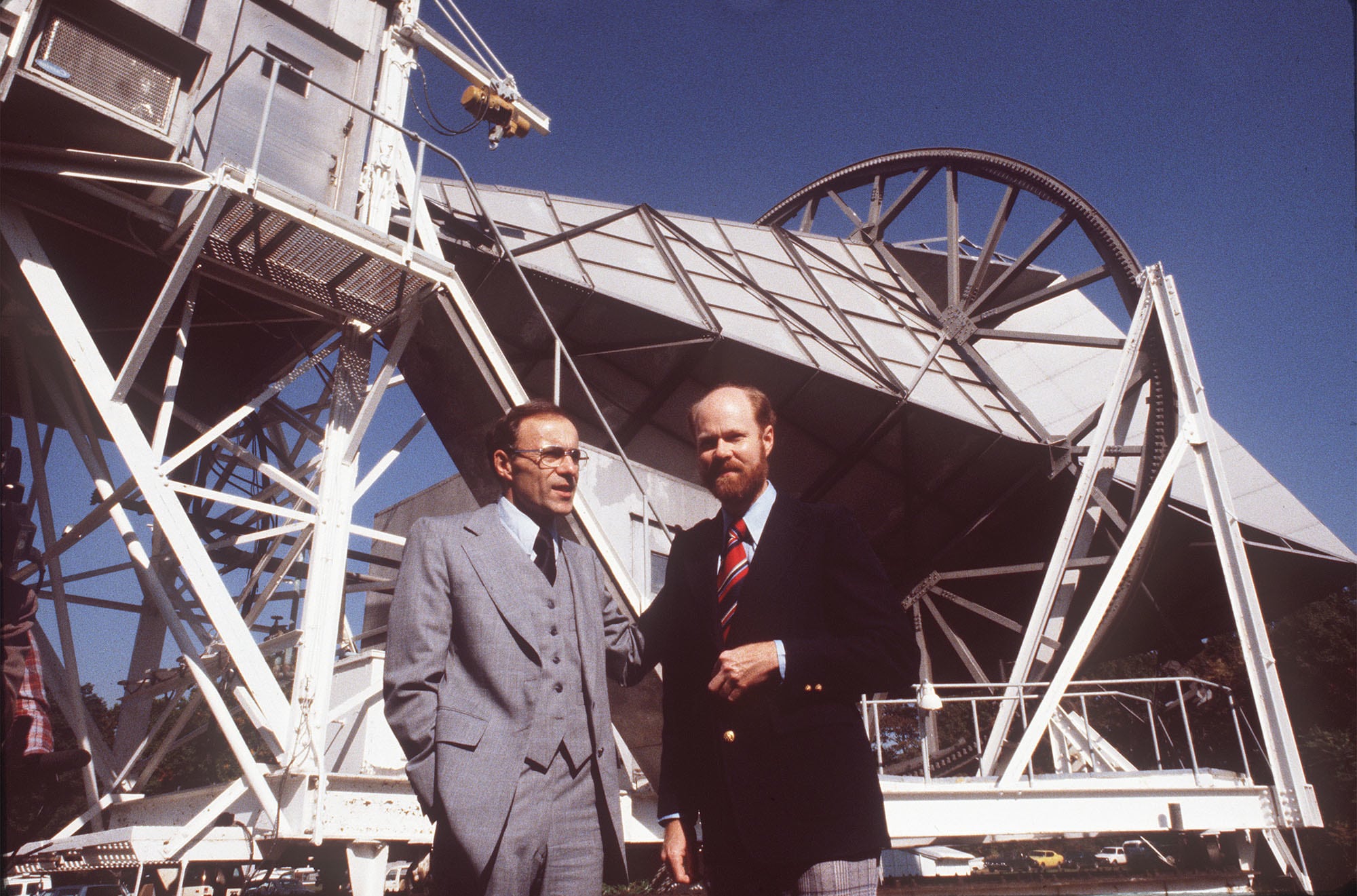Arno Penzias and Robert Wilson are two American physicists renowned for their groundbreaking discovery of the cosmic microwave background radiation (CMB) in 1965, a finding that provided substantial evidence for the Big Bang theory of the universe’s origin. This discovery has had a profound impact on cosmology, earning them the Nobel Prize in Physics in 1978.
Arno Penzias was born on April 26, 1933, in Munich, Germany. His family, being Jewish, fled Nazi persecution and eventually settled in the United States. Penzias pursued his education in the United States, earning a bachelor’s degree in physics from the City College of New York and later a Ph.D. from Columbia University. His early work focused on radar and communications research, which would later prove invaluable in his astronomical pursuits.
Robert Wilson was born on January 10, 1936, in Houston, Texas. He displayed an early aptitude for science and pursued a degree in physics from Rice University, followed by a Ph.D. from the California Institute of Technology (Caltech). Wilson’s expertise in radio astronomy and his meticulous experimental skills would become crucial in the pair’s collaborative work.
The paths of Penzias and Wilson converged at Bell Telephone Laboratories in Holmdel, New Jersey. They were using the Holmdel Horn Antenna, originally built for satellite communications, to conduct experiments in radio astronomy. During these experiments, they encountered a persistent background noise that they could not account for. This noise was isotropic, meaning it was uniform in all directions, and it did not correlate with any known sources of radio interference.
Penzias and Wilson meticulously ruled out all possible sources of the noise, including technical malfunctions and even pigeon droppings inside the antenna. Eventually, they realized that this noise was not a flaw in their equipment but a signal of immense cosmological significance. Their observations matched theoretical predictions made by other physicists, such as Robert Dicke and Jim Peebles at Princeton University, who had postulated the existence of residual radiation from the Big Bang.
The discovery of the cosmic microwave background radiation provided compelling evidence for the Big Bang theory, which posits that the universe began as a hot, dense singularity approximately 13.8 billion years ago and has been expanding ever since. The CMB is essentially the afterglow of the Big Bang, cooled to just a few degrees above absolute zero, now observable as microwave radiation permeating the universe.
Penzias and Wilson’s discovery was monumental because it offered direct observational evidence of the universe’s origins, supporting the Big Bang model over the competing steady-state theory, which suggested that the universe had no beginning and was in a constant state of creation. The CMB became a cornerstone of cosmological research, enabling scientists to further explore the universe’s infancy, its composition, and its ultimate fate.
In recognition of their groundbreaking work, Arno Penzias and Robert Wilson were awarded the Nobel Prize in Physics in 1978, sharing it with Pyotr Kapitsa for unrelated work in low-temperature physics. Their discovery has since paved the way for significant advancements in cosmology and astrophysics, leading to more detailed studies of the CMB by subsequent missions such as the COBE, WMAP, and Planck satellites.
Beyond their Nobel-winning discovery, both Penzias and Wilson continued to contribute to science and technology. Penzias held various leadership roles at Bell Labs, fostering innovation in telecommunications and technology. Wilson pursued further research in radio astronomy and maintained an active presence in the scientific community.
The legacy of Arno Penzias and Robert Wilson extends far beyond their individual achievements. Their collaborative work exemplifies the power of careful experimentation and open-minded inquiry in revealing the universe’s deepest secrets. Their discovery of the cosmic microwave background radiation has fundamentally shaped our understanding of cosmology, highlighting the dynamic and evolving nature of the cosmos.
